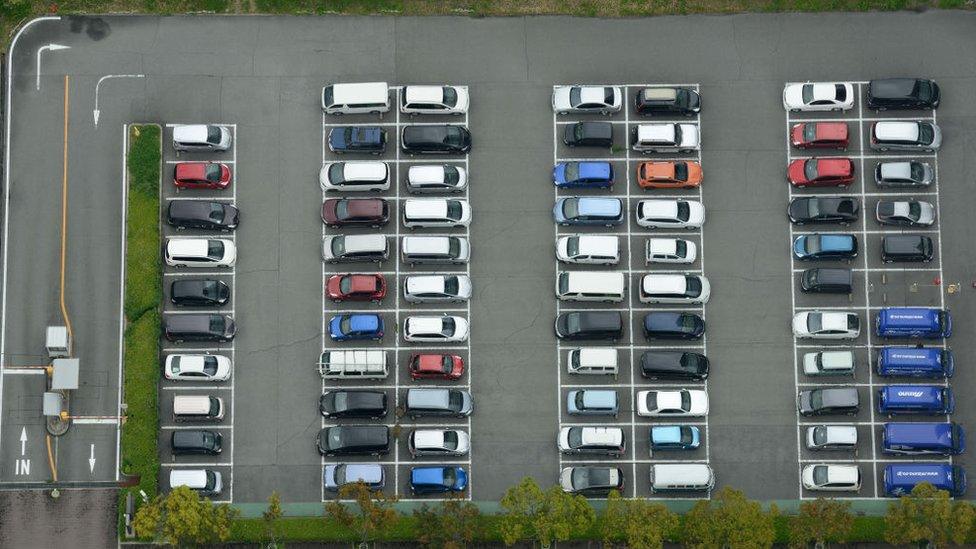The four big ideas in Scotland's new transport law
- Published
The Scottish government's transport bill has been approved by MSPs at Holyrood and will become law. So, what is set to change?

1. Old polluting cars to face emission charges
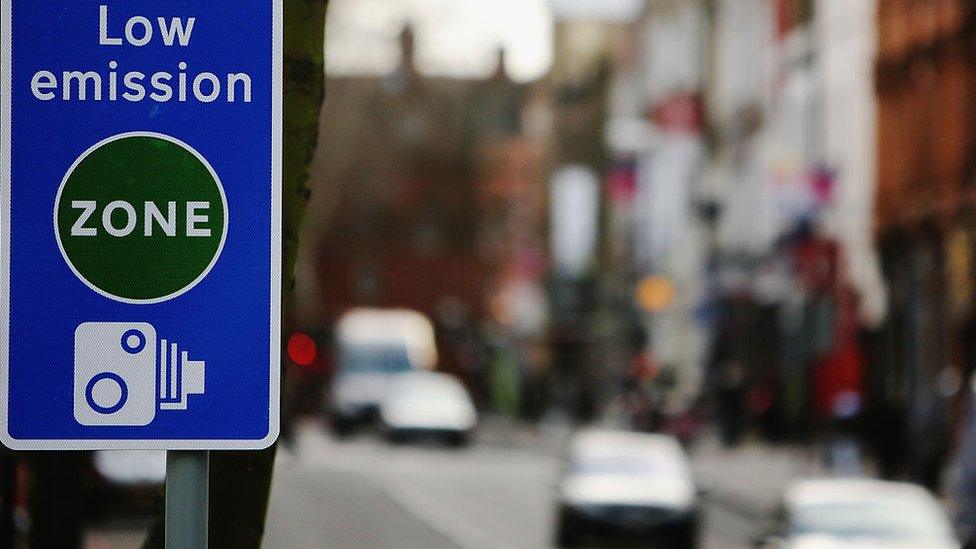
The Scottish government has pledged to cut pollution, and the first local authority to introduce a scheme to help fulfil that pledge has been Glasgow.
There are two phases to the low-emission zone (LEZ) plan. But what does it mean and how does it work?
LEZs do not forbid higher-emission vehicles from entering, but daily charges inside the zone are enforced.
In Glasgow, the first phase involves handing a penalty notice to the owners of high nitrogen dioxide producing buses that travel into the city centre. There are signs pointing out the boundary of the low-emission zone and enforcement is made through Automatic Number Plate Recognition (ANPR) cameras, as opposed to barriers or toll booths.
Phase two will come into effect in December 2022 and will see all high-emission vehicles travelling into the zone hit by the charge. To find out if your car might be subject to the penalty, click here, external
Edinburgh, Dundee and Aberdeen councils are also discussing introducing LEZs.
2. Double parking and pavement parking to be outlawed
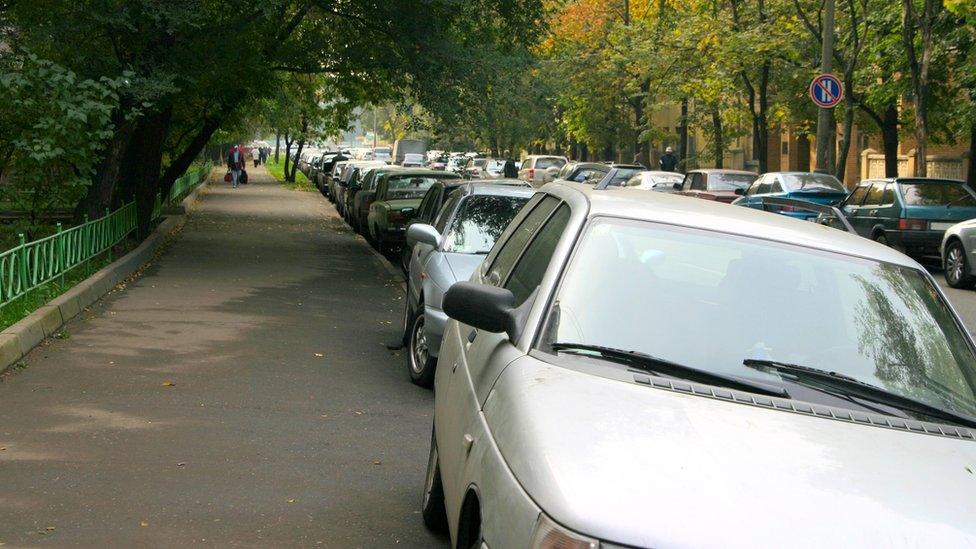
In 2016, MSPs voted in principle to make it an offence to park on pavements.
The Glasgow Kelvin MSP Sandra White had proposed legislation which would also make it illegal for vehicles to double park.
Her bill won unanimous support, and the SNP government pledged to legislate to tackle irresponsible parking.
You might think there is already a law prohibiting pavement parking. But there is not.
The Roads (Scotland) Act 1984, external dances around the issue, saying things like it is an offence to "place or deposit anything on a road that causes an obstruction" or "leave a vehicle, or trailer, parked on a road (which includes the pavement) in a position that may cause a danger to other road users".
This new transport law makes the situation clearer, saying;
parking on the pavement is prohibited, subject to a number of exemptions
double parking is prohibited, subject to a number of exemptions
local authorities can exempt certain streets/part of streets
a system will be created for local authorities to enforce the pavement parking and double parking prohibitions
vehicles will be moved, removed and eventually disposed of, subject to a number of safeguards.
3. Local councils could run bus services
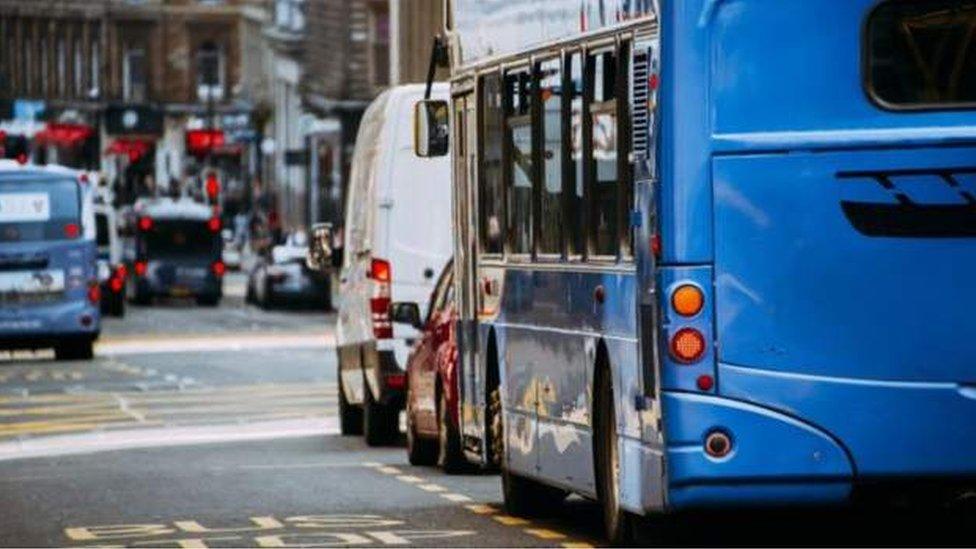
Ministers want to halt the decline in bus use in Scotland, after passenger numbers fell by 10% over five years.
The new legislation would give local councils and regional transport partnerships (RTPs) more flexibility to improve services, either by working with bus companies or by stepping in and running services themselves.
It includes new local franchising powers, and requirements on bus operators to provide more information to the public about routes, timetabling and fares.
There will also be "smart-ticketing" across bus, rail, ferry, subway and tram networks, with a "national technological standard" that such schemes would have to live up to.
4. Paying to park at work
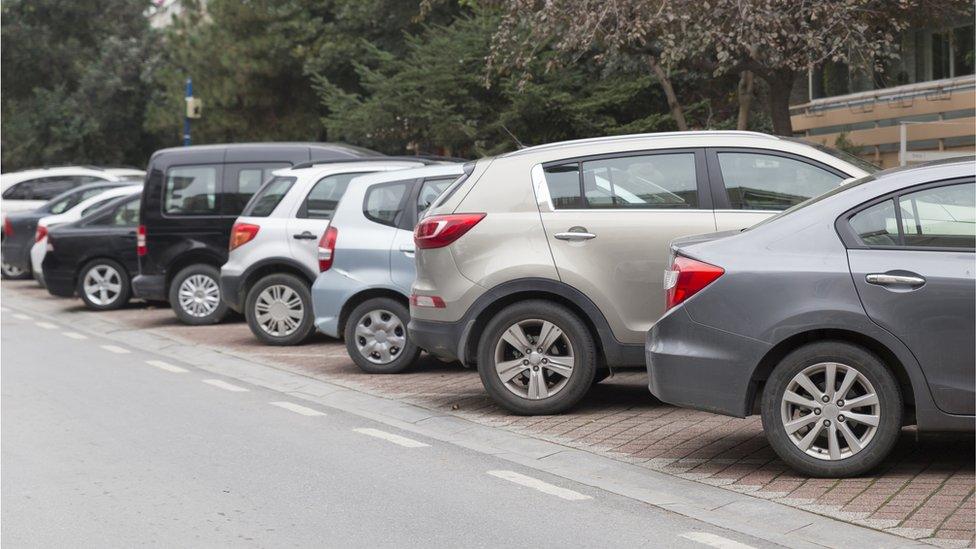
The new law would give all Scottish councils the power to impose the workplace parking levy - so far only Glasgow and Edinburgh have signalled they plan to do so
It is likely to be modelled on a scheme in Nottingham, the only UK city to have implemented a workplace parking levy, where employers offering more than 10 spaces are charged £415 a year for every space
It is up to them to decide if they pass this cost on to staff - in Nottingham 80% of big employers do recoup at least part of it from their workers.
Employers in Nottingham have adopted different ways of reclaiming the money, for example the city council deducts a percentage of annual salary, meaning higher paid workers pay more.
NHS sites would be exempt for the Scottish scheme but it would be up to councils to decide on other exemptions.
Money raised from the levy would be reinvested in improving transport.
- Published10 October 2019
